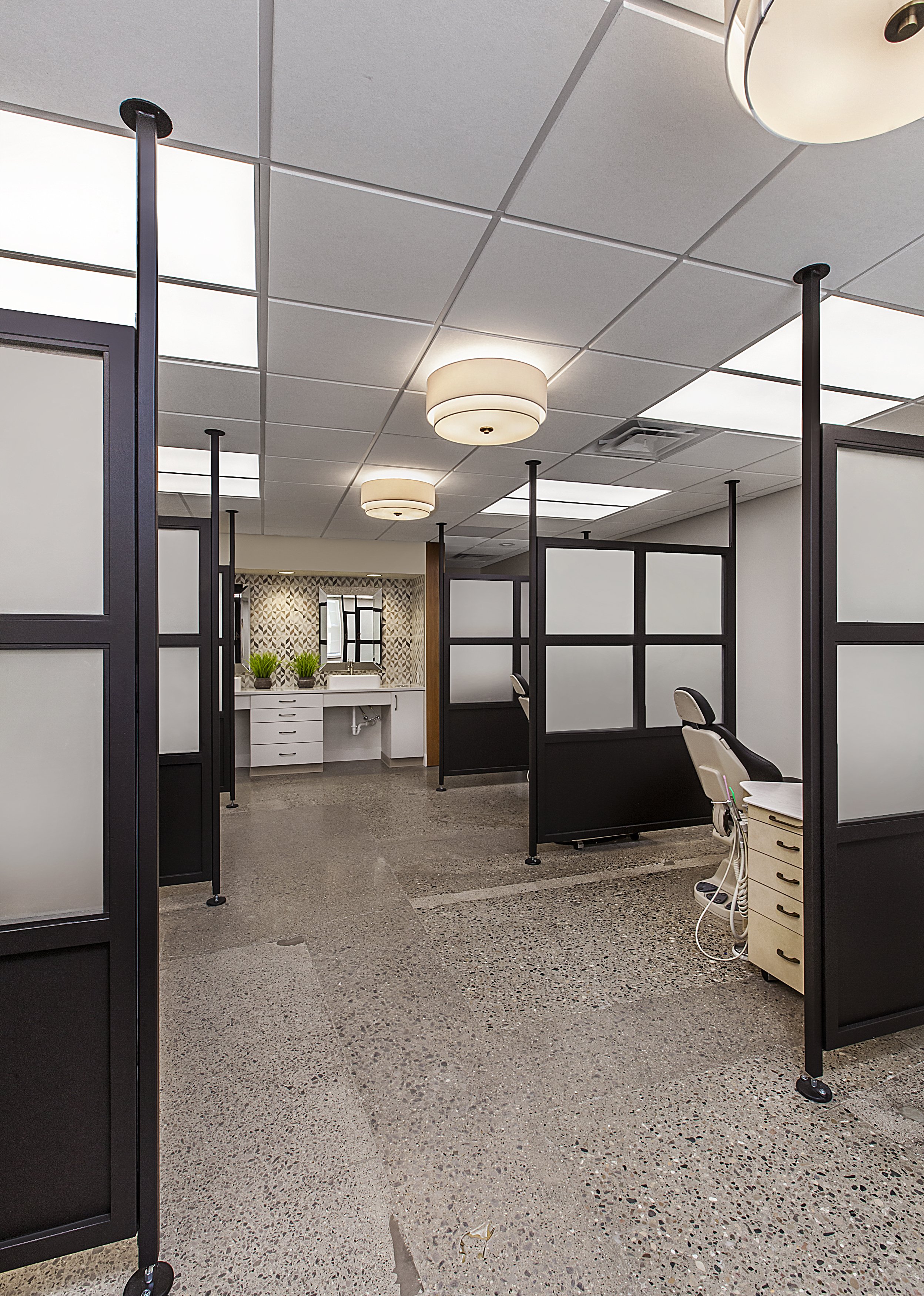
While our staff is always happy to answer your questions, here are some of the most frequently asked questions our patients ask us.
If you have additional questions about orthodontic treatment for yourself or your child, please do not hesitate to call us!
FRequently Asked Questions
-
The American Association of Orthodontists recommends children have an initial orthodontic examination at age seven. Although no treatment may be necessary at this time, sometimes early interceptive treatment is necessary to normalize eruption of permanent teeth, reduce the risk of dental trauma, correct harmful habits, or assist jaw growth. Some problems may be easier to correct if they are found and treated early.
-
Early interceptive, or Phase I, treatment occurs when both baby and permanent teeth are present, usually between ages 7-10. Phase I treatment is performed for problems that, if left untreated, could lead to the development of more serious dental problems over time. The goal is to reduce the severity of a developing problem and eliminate the cause, as well as reduce the time needed for later orthodontic treatment.
Phase II is the next phase of comprehensive orthodontic treatment, usually with full braces. Patients who have early interceptive treatment will most likely need Phase II treatment once all of the permanent teeth have erupted. When finished with comprehensive treatment, the patient must wear retainers to keep teeth in their new positions. -
During the complimentary orthodontic examination, Dr. Mertz will discuss concerns you have about you or your child’s teeth and will take time to answer any questions you have about braces. Dr. Mertz will evaluate whether it is time to begin treatment. When treatment is indicated, the next step will be gathering orthodontic records, including patient photos, dental scans, and x-rays. Schedule your initial consultation today - it is free!
-
Yes! It is very important that you continue to see your dentist for regular cleanings while you are in orthodontic treatment. Some dentists may want to see their patients every three to four months while in orthodontic treatment. Without regular cleanings and good hygiene, discoloration of teeth or gum disease may develop.
-
Absolutely! It is never too late to get a beautiful smile! We offer traditional metal braces as well as clear ceramic braces and clear aligners for adults who are concerned about the appearance of braces.
-
Yes! We are able to bill most dental insurance companies. Please bring your dental insurance card to your orthodontic examination so that we may review your policy to maximize your orthodontic benefits. We also offer interest-free payment plans and discounts for payment in full when treatment begins.
-
At Grosse Pointe Orthodontics, we will do our best to accommodate your busy family’s scheduling needs whenever possible. We do offer early morning and lunch time appointments. With the use of weekly Dental Monitoring scans, most of our patients miss a minimal amount of school or work throughout the course of their treatment.
-
If you are experiencing excessive pain or discomfort, please call our office as soon as possible.
A broken bracket or a pokey wire is not an emergency but please call the office and we will get you scheduled for a comfort visit. We can address many concerns over the phone.
-
It is best to avoid some types of food during orthodontic treatment, such as food that is very hard, chewy or sticky. These foods can cause braces or appliances to break and can prolong treatment time. We also recommend that patients brush their teeth after each meal, especially after eating sugary foods. Patients receive a list of foods to avoid when they begin treatment.
-
Aligners
Dental monitoring
Botox treatments (therapeutic and cosmetic)
Adult orthodontics
Children to Teen orthodontics
Teeth Whitening
-
In addition to accepting dental insurance, our office accepts HSA, FSA, and most major credit cards for payment.
